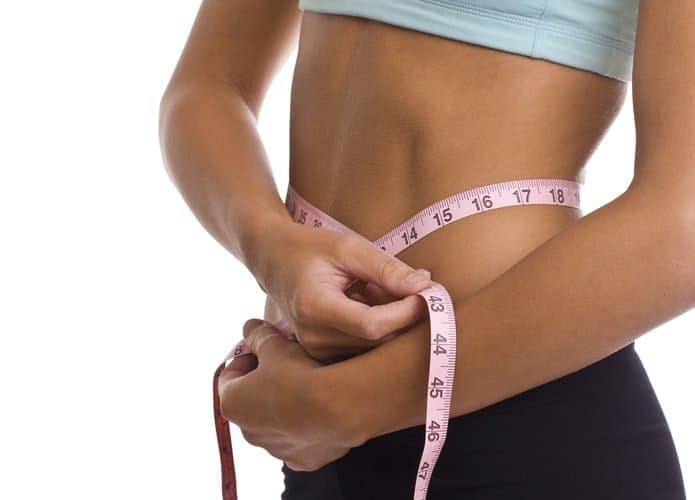To stay at a healthy weight, balance the calories you eat and drink with the calories you burn (use up). Calories are a measure of the energy in the foods you eat. To lose weight, you need to burn more calories than you eat.
A healthy diet and physical activity can help you control your weight. You burn more calories when you are physically active.
Finding out your Body Mass Index (BMI) is an easy way to learn if you are at a healthy weight.
- If you are overweight and have risk factors for heart disease (like high blood pressure or high cholesterol), or if you have obesity, try to lose weight. You can lose weight by eating fewer calories and getting more physical activity.
- If you are at a healthy weight, take steps to stay at the same weight. You can stay at the same weight by getting regular physical activity and eating the right number of calories.
- If you think you might be underweight, talk to your doctor or nurse about how to gain weight in a healthy way.
What can losing weight do for me?
Being overweight or having obesity can raise your risk for serious health conditions like:
- Type 2 diabetes
- Heart disease
- High blood pressure
Losing weight can:
- Lower your blood pressure
- Lower your blood sugar
- Raise your HDL (good) cholesterol
- Lower your LDL (bad) cholesterol
You may start to see these health benefits by losing just 5 to 10 percent of your body weight. For example, if you weigh 200 pounds, this would mean losing 10 to 20 pounds.
Start by making a promise to eat well, move more, and get support from family and friends.
Set realistic goals.
If you need to lose weight, do it slowly over time. Start out by setting small goals, like:
- Lose 1 to 2 pounds a week.
- Start by adding 10 minutes of physical activity to my daily routine.
- Cut back on second helpings of meals.
Keep a food and activity diary.
When you know your habits, it’s easier to make changes. Write down:
- What you eat
- When you eat
- Where you eat
- How much you eat
- Your physical activity
- How you are feeling
Get more physical activity.
Remember that to lose weight, you need to burn more calories than you eat. Get active to balance the calories you take in with the calories you use.
- Aim for at least 2 hours and 30 minutes of aerobic physical activity a week. For example, try going for a brisk walk.
- Try to do aerobic activity for 30 minutes 5 times a week.
- Do muscle-strengthening activities twice a week. Try lifting weights or doing push-ups.
Even some physical activity is better than none. If you don’t have time for 30 minutes of activity, get moving for shorter 10-minute periods throughout the day.
How much activity you need will depend on your weight goals. You may need to do 5 hours of moderate-intensity activity a week to meet your goals.
Eat healthy.
Eating healthy is good for your overall health. Making healthy food choices that are lower in calories can also help you manage your weight.
Here are a few healthy eating tips:
- Fill half your plate with fruits and vegetables.
- Choose whole grains, fat-free or low-fat dairy products, and a variety of foods with protein, like eggs and beans.
- Drink water or fat-free milk instead of soda or other drinks with added sugars.
- Read the Nutrition Facts label and choose healthier versions of your favorite foods that have fewer calories and less added sugar, saturated fat, and sodium.
- Bring this shopping list of heart-healthy foods the next time you go food shopping.
Eat smaller portions.
Eating a healthy diet is important, but you also need to pay attention to how much food you eat and limit portions of high-calorie foods.
Here are some ideas for watching your portions:
- Start the day with a healthy breakfast. For example, try whole-grain cereal with fruit and low-fat milk.
- Plan your meals and snacks ahead of time. Stick to an eating schedule that works for you.
- Read the label to find out how many servings are in a package. There may be more than 1!
- Put a serving of food in a bowl instead of eating out of the package or container.
- Serve yourself a portion that’s the right amount of calories for you and commit to not having more. Leave serving dishes on the stove or countertop rather than bringing them to the table so you’ll be less tempted.
- Eat slowly – this will give you time to feel full.
- Don’t eat in front of the TV or computer. It’s harder to keep track of how much you are eating.
Ask your doctor for help.
You may also want to talk to a doctor or nurse about different ways to lose weight. Your doctor can tell you about your options













